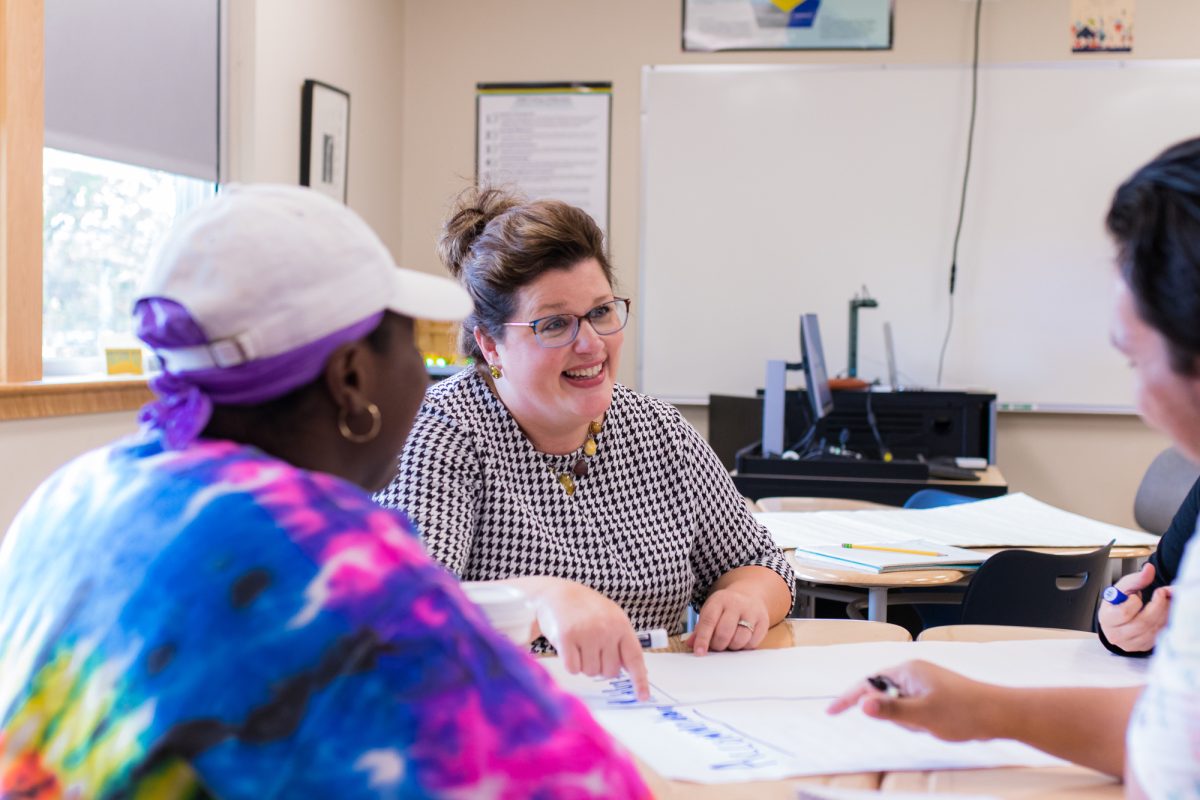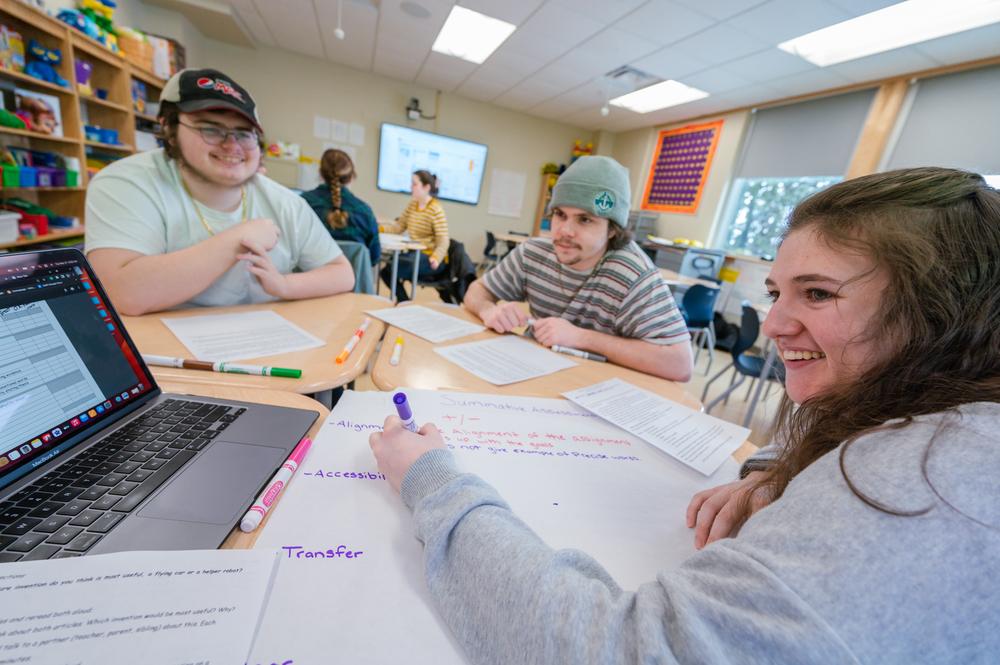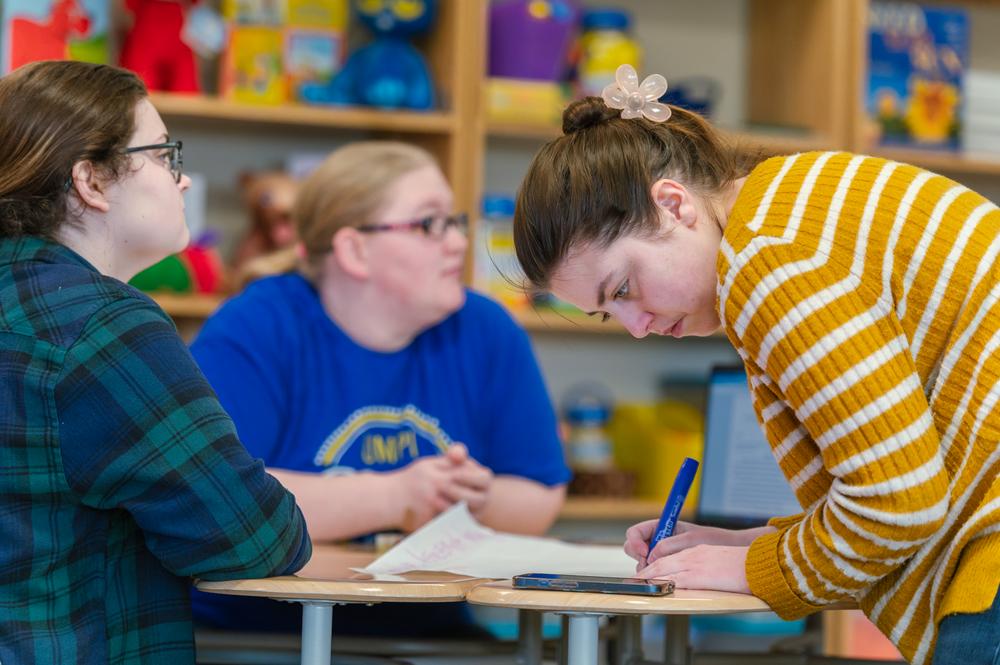Explore Your Path to Teaching Excellence at UMPI’s Education Program
The mission of the UMPI Education Program is to prepare reflective educators who are dedicated to teaching and learning, who have an understanding and appreciation of the synthesis of theory and practice, who recognize the value and importance of collaboration and relationships, and who possess and demonstrate proper ethical and professional dispositions. Whether your aim is to become a teacher or to renew or add certifications to your existing teaching degree, we have what you’re looking for. The University offers a Bachelor of Science degree in Elementary Education (K-6), Secondary Education (6-12), and Physical Education (K-12), all of which include in-depth Student Teaching and Field Experiences and are underpinned by our Conceptual Framework. Our Education Program is approved by the Maine Department of Education, and our Education faculty members prepare our teacher candidates to meet Maine Common Core Teacher Standards and the Maine Learning Results.
Our program also has Teacher Certification Pathways designed for those who already have a Bachelor’s degree and are looking to become a certified teacher; this includes our post-baccalaureate program for Canadian students. We also offer online courses and pathways for distance learners.
Your Pace Education
We offer a YourPace BLS Educational Studies Minor pathway to online degree completion
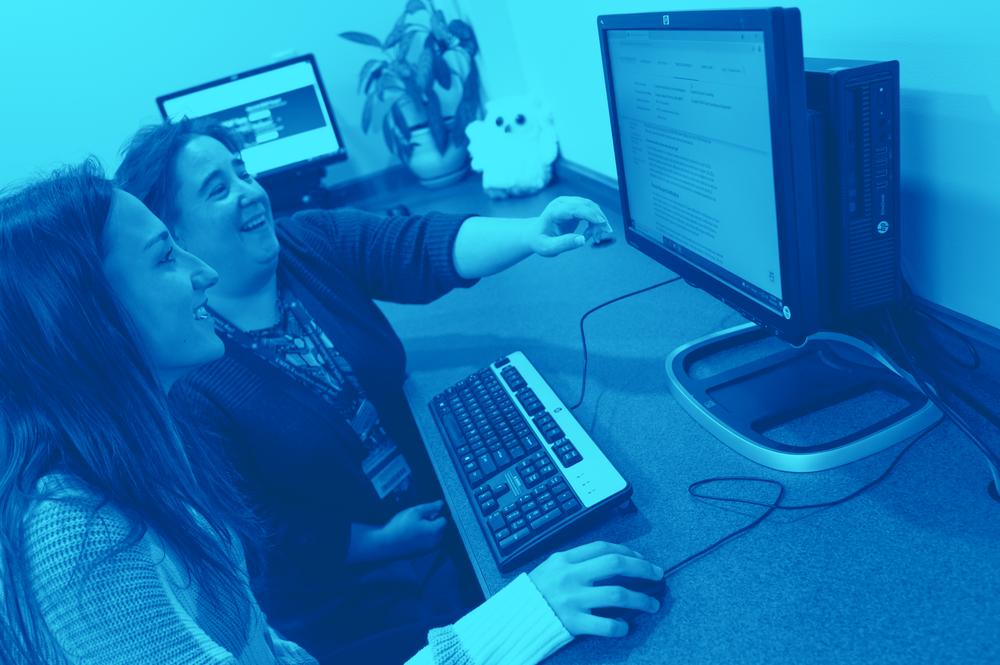
EXPECT generous scholarships
Teacher Certification Pathways
At UMPI, we offer several different pathways for you to become a certified teacher in Maine. In addition to the traditional pathway of a standard four-year Bachelor of Science in Education degree, we offer multiple courses aligned with State of Maine teacher certification requirements. This allows for you to pursue initial or additional certifications at your convenience, while receiving support and guidance from us along the way
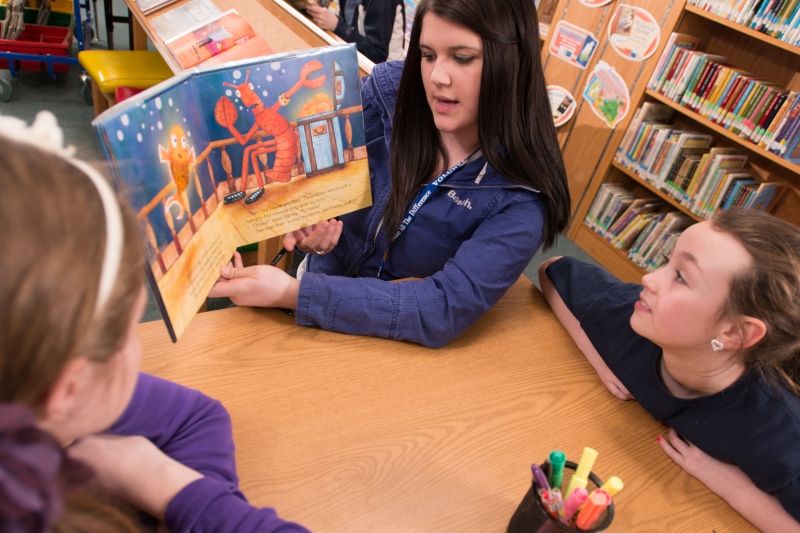
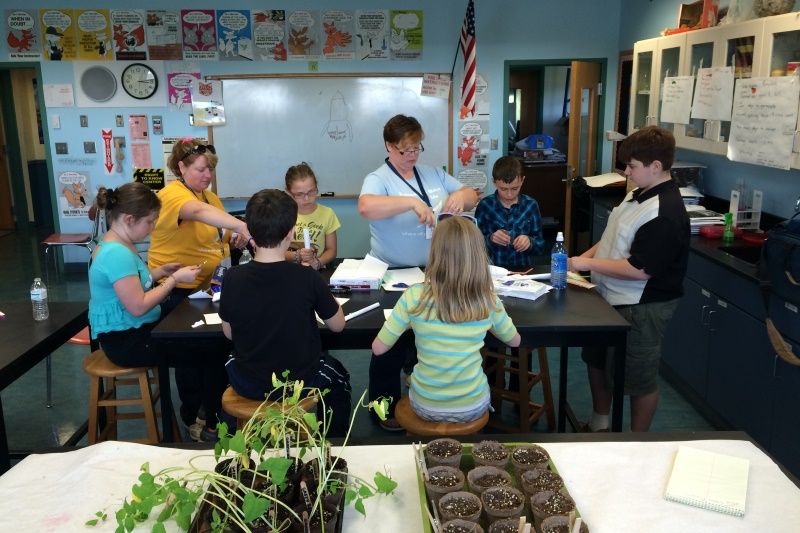
Post-Bacc Student Information
If you already have a three- or four-year college degree from Canada and are looking for a pathway to teacher certification, our Post-Baccalaureate Teacher Education Program is just what you need! Our Education team will help you to design a personalized plan that takes into consideration all the courses you completed in your past degree.
EXPECT an education tailored to your needs
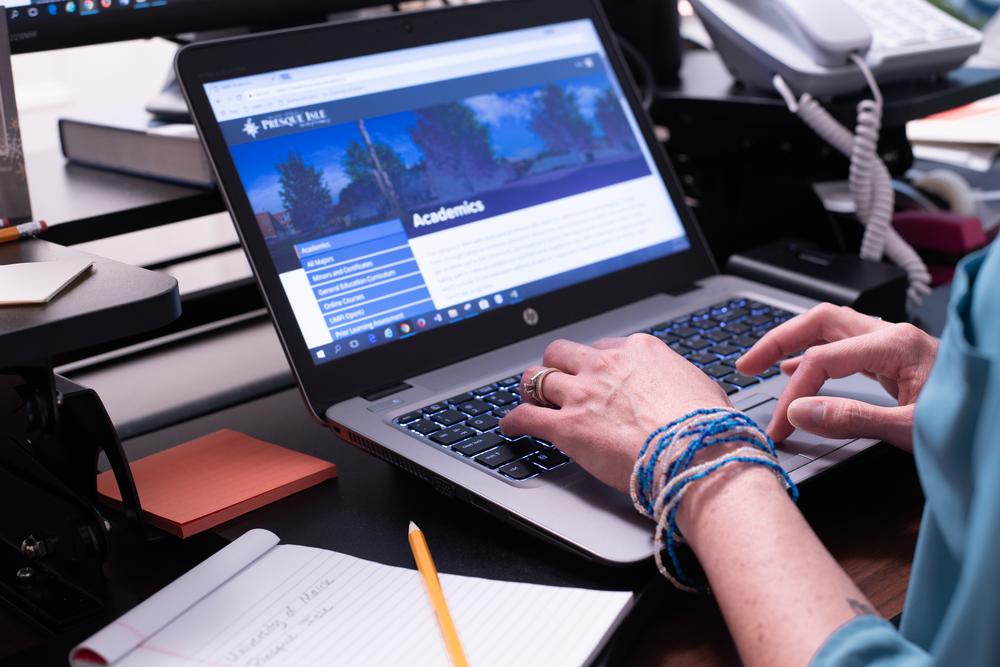
Field Experiences
UMPI maintains partnerships and working relationships with many schools and districts in northern Maine and throughout the state, meaning you’ll have plenty of opportunities for in-the-classroom experiences at area public schools. From classroom observations to student teaching to work experiences while you’re still an UMPI student, you’ll get experiences that will ensure you’re career-ready.
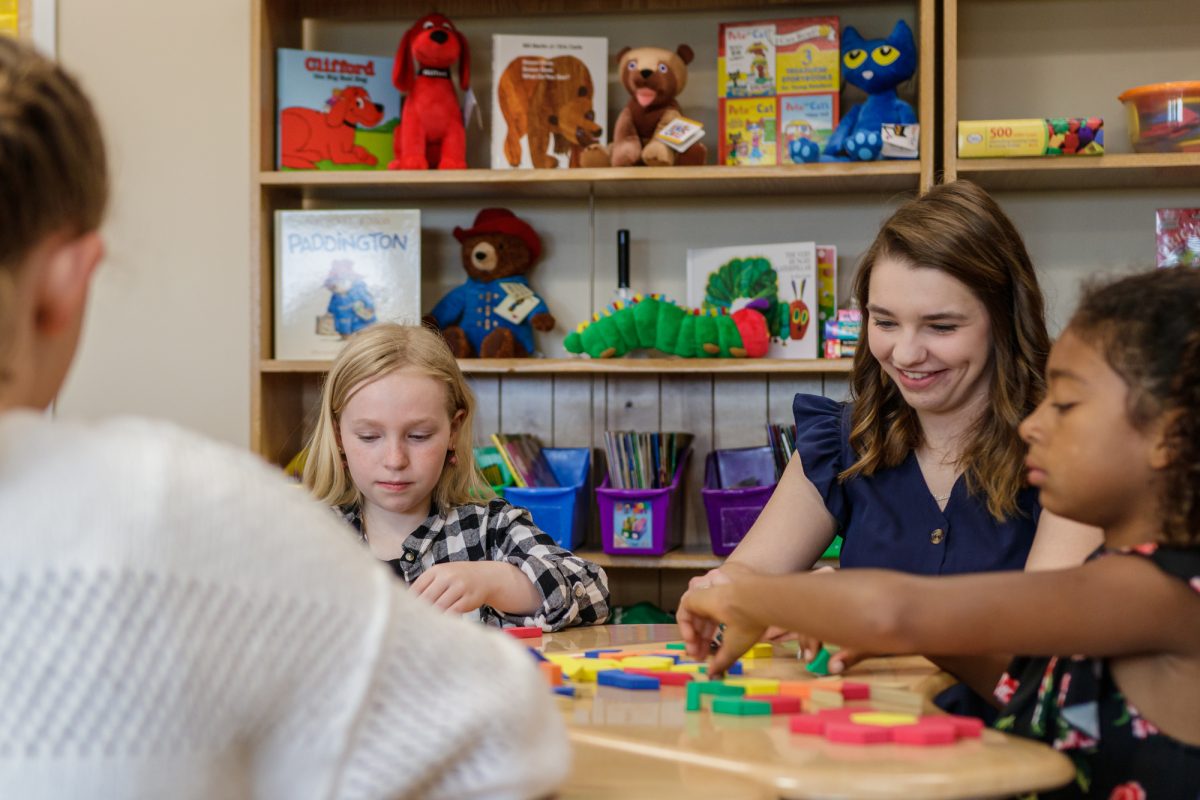
Degrees and Concentrations
Each of our Education degrees includes the following components: a General Education Curriculum, a Subject Area major, a sequence of Professional Education courses, and Student Teaching. Working with area schools and professional organizations and agencies, students are given progressive opportunities to put theory and pedagogy into practice, including a wide range of field experiences. Graduates of the program demonstrate competencies for meeting Maine’s Common Core Teacher Standards through academic study, field experiences, and reflective practice, and are eligible for teacher certification by the Maine Department of Education. This certification is recognized by other states and provinces with which Maine shares reciprocity.
Elementary Education
The Elementary Education Major focuses on teaching and learning in the K to 6 environment, with majors required to complete a subject area concentration in Art, Early Childhood Education, English, Mathematics, Science, Social Studies, or Special Education. The Elementary Education Program is based on national standards in each discipline, Maine’s K-12 Learning Results, and Maine’s Common Core Teacher Standards required by the Maine State Board of Education.
Concentrations in Elementary Education
- Art – Learn how to teach the visual arts in the public school system, principally in the United States and also in Canada. This includes learning about the pedagogical implications of art education and developing creative abilities in the learner.
- Early Childhood Education – This concentration will enable you to gain an additional endorsement in K-3 education, and in birth through school-age programming as well.
- English – The courses in this concentration will enable you to apply your additional knowledge and skill in teaching reading and writing, and would be especially beneficial to those hoping to teach at upper elementary levels.
- Mathematics – This concentration provides you with a solid grounding in mathematics principles, from the foundations to probability, algebra and geometry, so you can be most effective in promoting mathematics learning for your future students.
- Science – Studies in this concentration cover biology, chemistry, energy and geology to prepare you to teach science in the classroom. Science teachers are in great demand nationwide, and a concentration in this area will certainly attract employers’ attention in hiring.
- Social Studies – The range of history and social science courses you will take in this concentration will help you integrate social studies into many other content areas.
- Special Education – You will learn how to instruct students with disabilities and other special needs, how to integrate technology in the classroom for these students, and how to apply the principles of effective classroom management and individualized behavior interventions with them.
Minors
- Educational Studies
- Early Childhood Education
These minors will provide knowledge and skill that will allow you to work in a variety of settings with children, perhaps as an Educational Technician or in a private pre-school or daycare setting. Additional coursework and student teaching would lead to eligibility for certification in the future if you chose that route.Follow these links to learn more about the Admission process into a Teacher Education Program, or Eligibility requirements for Student Teaching.
Secondary Education
The Secondary Education Major focuses on developing teaching skills and curriculum materials for the grade 6-12 classroom, with majors required to complete a concentration in English, Mathematics, Biology, or Social Studies. The Secondary Education program is based on national standards in the content area discipline, Maine’s K-12 Learning Results, and Maine’s Common Core Teacher Standards required by the Maine State Board of Education.
Concentrations in Secondary Education
- Science – Science, a key part of STEM education, is in demand at the secondary level, and this concentration will position you well for ready employment. Choose from a Life Science or Physical Science concentration. Life science includes studying living things using biology, ecology, microbiology, psychology, and medicine. Physical sciences focus on non-living things and include the areas of earth science, astronomy, geology, physics, and chemistry.
- English – English at the secondary level is at the center of Common Core, proficiency-based education, and this concentration will provide the content knowledge and skill you need.
- Mathematics – Math is one of Common Core’s most important focuses, and is a crucial element in STEM education. This concentration will prepare you to be an effective math teacher, and help you gain ready employment.
- Social Studies – You will take a variety of history and social science courses that will enable you to teach multiple related subjects at this level.
Minors
- Educational Studies
- Early Childhood Education
These minors will provide knowledge and skill that will allow you to work in a variety of settings with children, perhaps as an Educational Technician or in a private pre-school or daycare setting. Additional coursework and student teaching would lead to eligibility for certification in the future if you choose that route.Follow these links to learn more about the Admission process into a Teacher Education Program, or Eligibility requirements for Student Teaching
Physical Education
The Physical Education Major is designed specifically for the student who wishes to become a certified physical education teacher. Students learn both the pedagogy and how to develop and deliver the hands-on activities necessary for a successful physical education classroom experience. There is also a non-teaching degree option. For more details about the teaching and non-teaching PE degrees, please click here.
Follow these links to learn more about the Admission process into a Teacher Education Program, or Eligibility requirements for Student Teaching
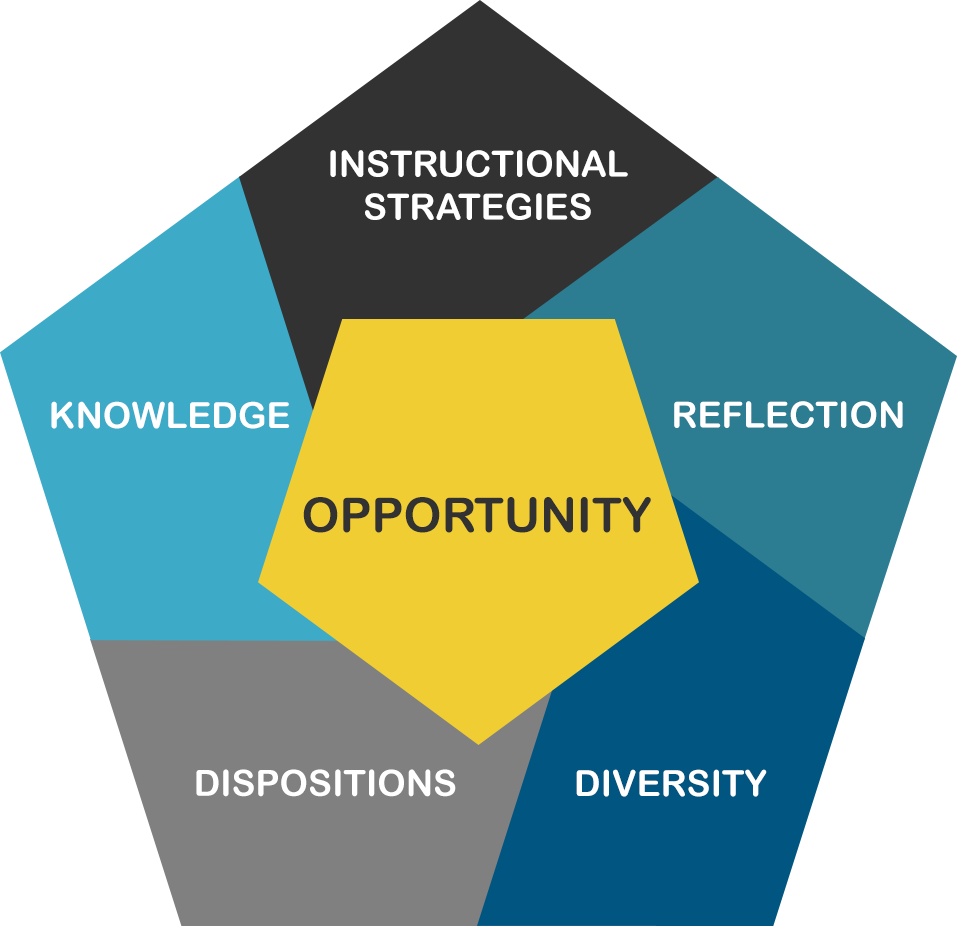
Conceptual Framework
Our Education Program uses a conceptual framework–it is centered around Opportunity and includes five other important elements: Knowledge, Reflection, Dispositions, Diversity, and Instructional Strategies. All of these help to prepare future educators to recognize educational needs and respond to them effectively.
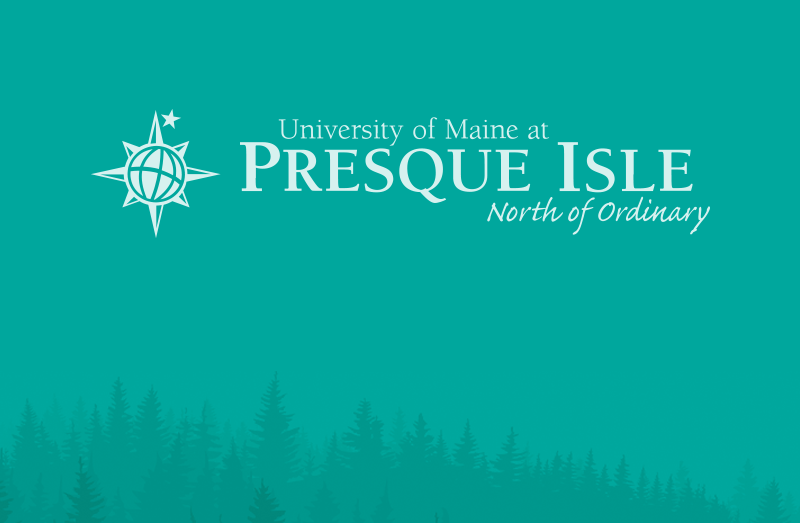
Program Learning Outcomes
Our Program Learning Outcomes are based on performance standards for Maine Initial Teacher Certification. These outcomes will ensure that you are ready for the classroom and future growth in the profession.
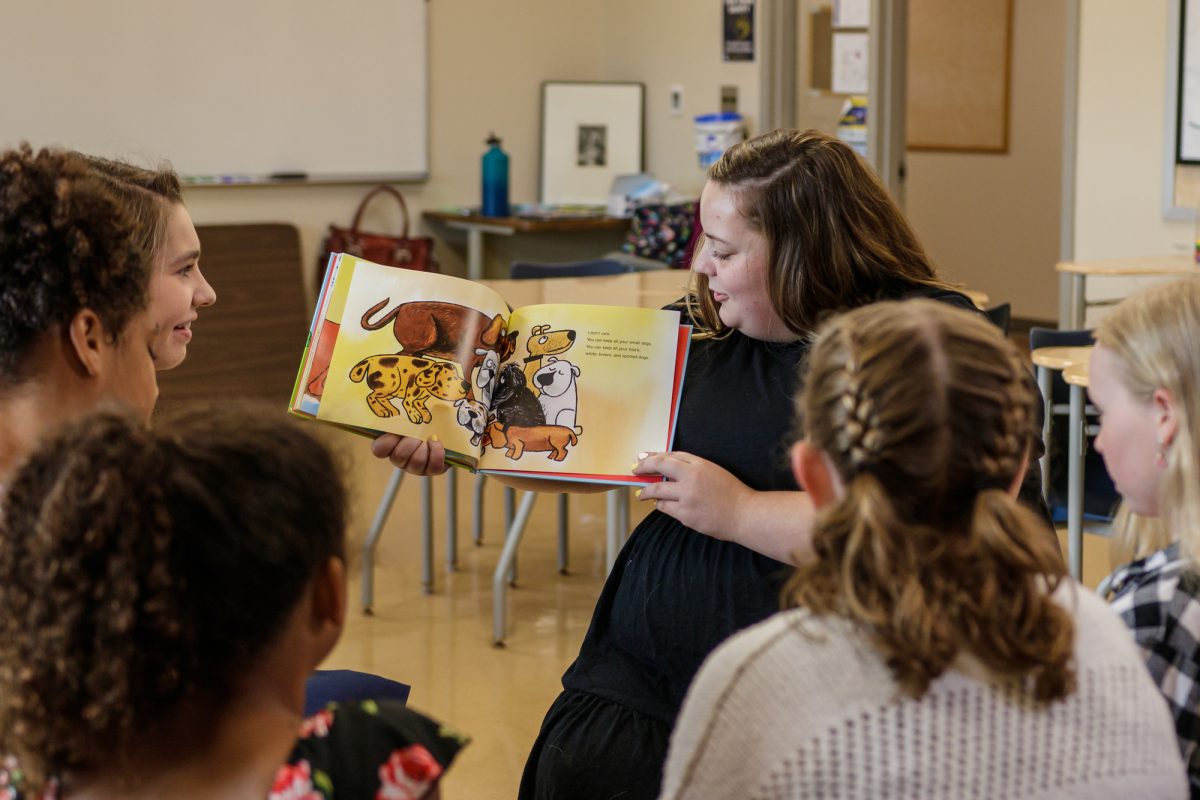
Student Teaching
The capstone to our program, student teaching gives you the opportunity to spend a semester in a classroom working closely with a supervising teacher. Education faculty work hard to select the best student teaching placement for you so that you can learn important skills and develop teaching strategies.
Program Candidacy & Teacher Certification Pathways
Admission into a Teacher Education Program
Ready to take the next step and become a candidate in our Education Program? To be eligible, you’ll need to do the following:
- Successfully complete your first two semesters, both of which require mandatory field experience;
- Demonstrate evidence of appropriate professional teacher dispositions;
- Successfully pass a candidacy interview with faculty of the Education Program.
All Education majors are expected to work closely with faculty advisors to follow the identified sequence of courses for their particular major. Students with secondary advisors outside of the College of Professional Programs should meet with their primary Education faculty advisor each semester to keep tabs on changing policies and requirements, and for course approval.
Teacher Certification Pathways
Which of these categories best fits your experience? Contact us to get started!
Faculty


Wendi Malenfant
- Location
- 211 South Hall
- Phone
- (207) 768-9435
- wendi.malenfant@maine.edu
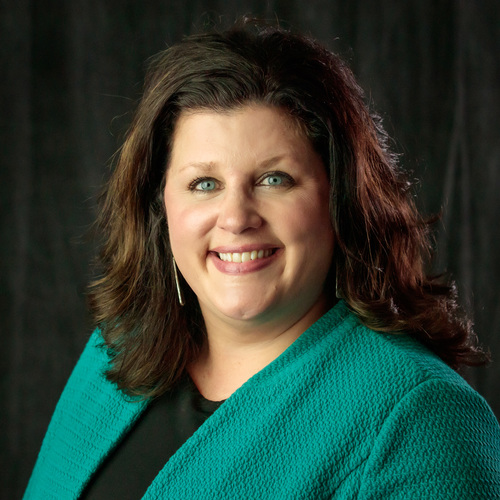
Alana Margeson
- Location
- Suite 235 Preble Hall
- Phone
- (207) 768-9554
- alana.margeson@maine.edu
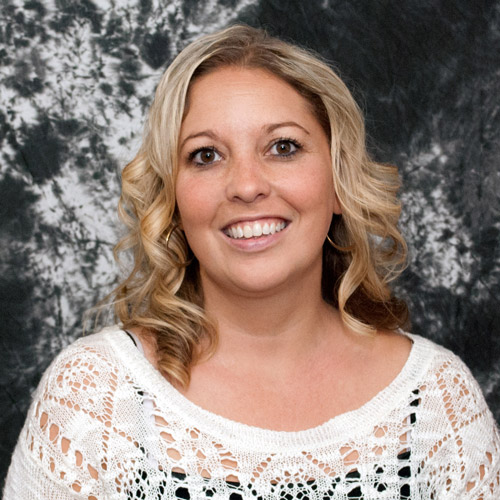
Loni Nadeau
- Phone
- (207) 834-8623
- loni@maine.edu
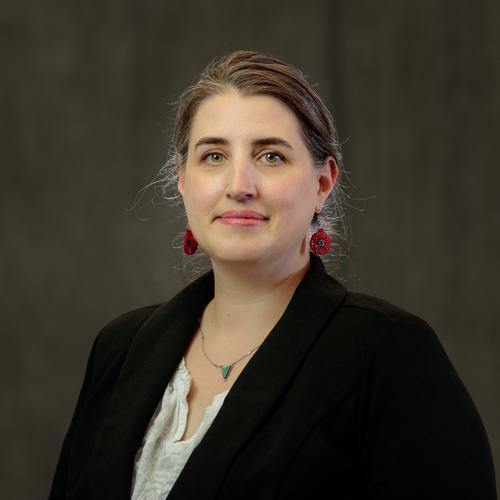
Heather Nuñez-Olmstead
- Location
- South Hall 310
- Phone
- (207) 768-9544
- heather.nunez@maine.edu
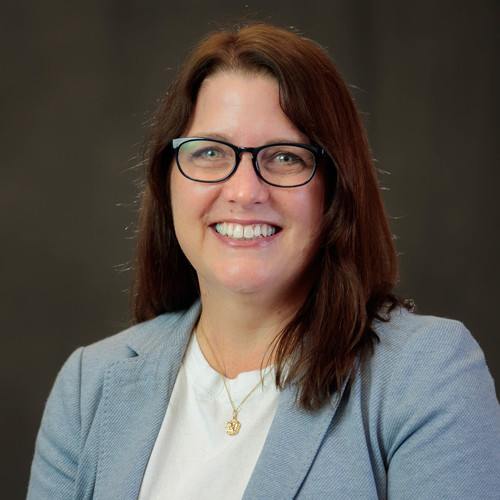
Shannon Sleeper
- Location
- 213 South Hall
- Phone
- (207) 768-9503
- shannon.sleeper@maine.edu
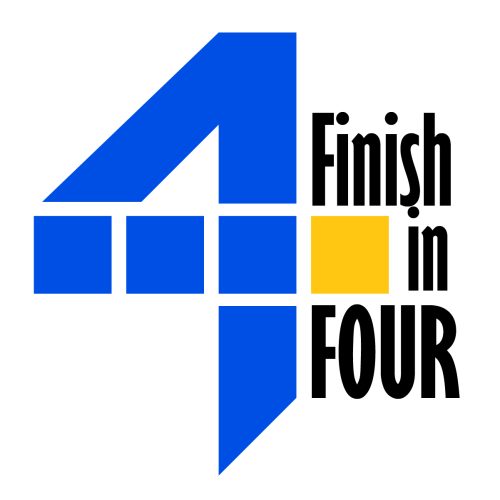
EXPECT to Finish in Four
Other Important Links
Education Program Offerings
What can you do with a degree in Education?
Next Step: Admissions
We’re so excited that you’re considering the University of Maine at Presque Isle! As a student at UMPI, we want your experience to be anything but ordinary! So what makes UMPI extraordinary? Our Learning Environment, Our Student Engagement and Our Location!
No matter what stage of life you are in, we can help you take the plunge into higher education and put you on YOUR PATH TO SUCCESS!
